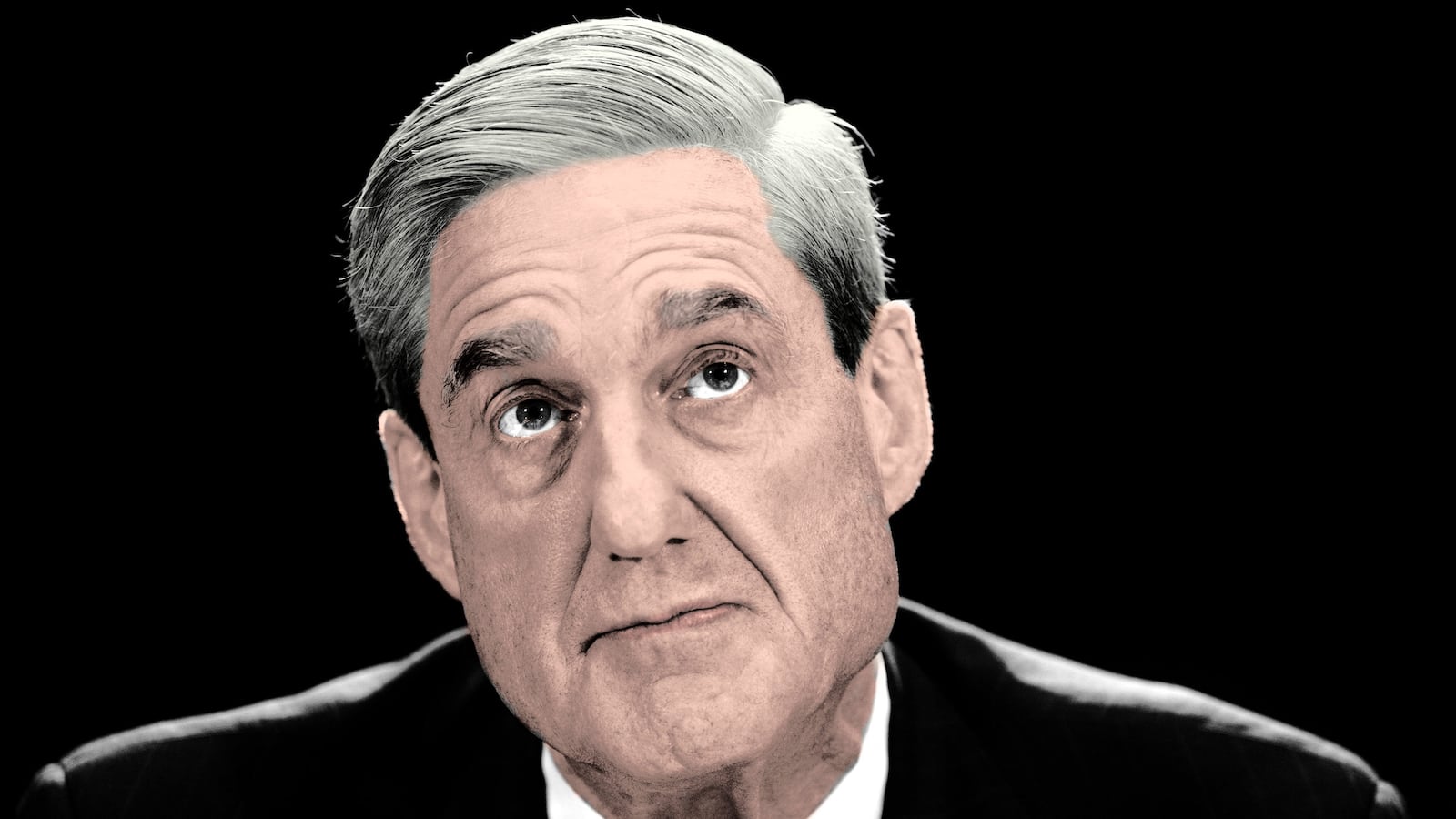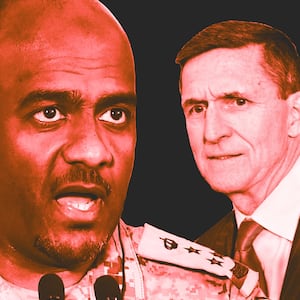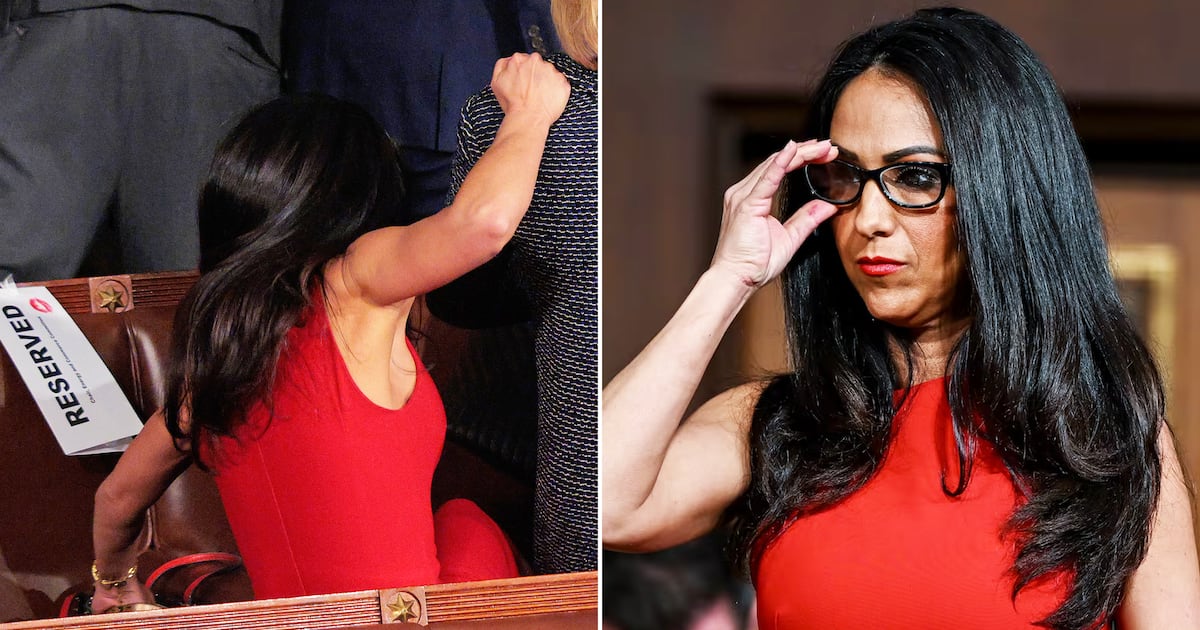Dick Cheney’s former top national-security aide has come under scrutiny from special counsel Robert Mueller, two people with knowledge of the probe tell The Daily Beast. It’s the latest sign that Mueller’s probe has expanded beyond the narrow bounds of Russian interference in American politics.
Mueller’s team has been looking into the communications and political dealings of John Hannah, the former Cheney adviser who later worked on Trump’s State Department transition team. This includes interactions with Lebanese-American businessman and fixer George Nader, who brokered meetings between foreign dignitaries and Team Trump, and Joel Zamel, a self-proclaimed social-media guru with deep ties to Israeli intelligence. The Daily Beast previously reported that the three men met with a top Saudi general in the days leading up to Trump’s inauguration to discuss plans to undermine and overthrow the government of Iran.
Hannah, who has not been accused of any wrongdoing, is close with Nader and Zamel, both of whom the special counsel has questioned, according to two people with knowledge of those relationships. Hannah is listed on the website of one of Zamel’s firms, Wikistrat, as a member of its advisory council. Nader worked with Hannah on Iraq policy during the George W. Bush administration, according to four people who worked with the two or who knew of their interactions during the war. Hannah is now a senior counselor for the Foundation for Defense of Democracies, a pro-Israel think tank known for its criticism of the Iranian regime.
Hannah and his attorney did not respond to requests for comment for this story. The Special Counsel’s Office declined to comment. A representative for Nader declined to comment. And a lawyer for Zamel did not respond to requests for comment.
Nader and Zamel have both been questioned by the Special Counsel’s Office and are reportedly cooperating with its probe into Russian meddling in the 2016 election. Nader has been questioned about his ties to high-level officials in the United Arab Emirates and Saudi Arabia, his relationship with Zamel, and his interactions with the Trump campaign. Mueller has questioned Zamel about his role pitching top campaign officials on an influence operation to help Trump win the election—which could have broken federal election laws.
Mueller’s interest in Hannah’s communications and interactions with the two suggest the special counsel’s probe is broader than previously understood.
“Mueller might be opening another front here,” said John McLaughlin, the former acting director of the CIA. “His mandate is to examine Russian collusion, but there’s the clause in his mandate that’s very open-ended—to the effect of ‘and any associated matters.’ It could be a separate line of inquiry about efforts to influence the election by foreigners.”
Since the investigation’s launch in 2017, the Special Counsel’s Office has looked at various aspects of the Trump campaign, including payments to former porn stars, foreign lobbying by campaign aides, and hacking by Russian spies into U.S. computer networks. Mueller has so far indicted more than a dozen people and is preparing for the sentencing of former National Security Adviser Michael Flynn and Paul Manafort, the former Trump campaign chairman.
Less has been said about Mueller’s probe of individuals involved in meetings that seem to lie on the outside of the main focus of the investigation. For example, the special counsel has looked at the January 2017 Seychelles meeting between Nader, former Blackwater head Erik Prince, and Kirill Dmitriev, the head of a Russian sovereign wealth fund. And it has asked witnesses about the offer by Zamel to employ social-media manipulation to help Trump defeat Republican primary opponents and Hillary Clinton, according to two individuals who worked with the group.
Mueller’s probe of Hannah’s interactions and communications with Nader, Zamel, and other Trump officials sheds new light on what appears to be a lesser-known side of the special counsel’s investigation—one that deals with Israeli, Emirati, and Saudi influence in the 2016 presidential elections.
Hannah is one of the individuals who sits at the center of that nexus.
“These are countries that are extremely powerful that operate outside of a Democratic framework converging in the most sacred of America’s democratic institutions: its election,” said Karen Greenberg, director of Fordham University’s Center for National Security.
“The Cheney group was often doing things... outside the customary boundaries of America’s internal and external politics,” she added. “If Mueller finds evidence of wrongdoing, it would make us wonder why we as a community—whoever we are—weren’t paying attention to Cheney alums’ persistent presence in American domestic politics.”
During the Republican primaries, Hannah was working as one of the senior leaders at the Foundation for Defense of Democracies. He often spoke publicly about the need for the U.S. to address the Iranian threat in the Middle East, especially as it related to Israel.
He introduced Nader to Zamel sometime in 2016, according to two people involved in the interaction.
One of Zamel’s companies, Wikistrat, was well-connected in Washington and had built up a base of high-level American military and intelligence officials to serve—or, at least, to appear to serve—as consultants to the firm. Meanwhile, Zamel’s other company, Psy Group, was in the midst of trying to sell the Trump campaign on an online influence strategy and was communicating with several Trump officials, including Rick Gates, who has since pleaded guilty to conspiracy and lying to the FBI. The New York Times was first to report the connection between Psy Group and Gates.
Eventually, the Psy Group plan was presented to Donald Trump Jr. and other campaign officials in August 2016 in a meeting that included Prince, Nader, and Zamel. The campaign never moved forward, according to individuals with knowledge of Psy Group’s work. But others familiar with Zamel and his interactions in the summer of 2016 told The Daily Beast it is unclear if the social-media plan was ever dropped.
Nader paid Zamel a large sum of money after Trump was elected, the Times reported, but it is unclear what that payment was for or if it related to Psy Group’s work.
Nader, for his part, was also developing his relationship with Crown Prince Mohammed bin Zayed of the UAE as well as senior Saudi officials, which included Mohammed Bin Salman, the de-facto leader of the kingdom. Throughout 2016 and 2017, Nader met with the two Gulf leaders and developed strategy on how to work with the Trump campaign. In one instance in January 2017, less than a week before the Seychelles meeting, Nader met in New York with Zamel, Trump campaign officials and Gen. Ahmed al-Assiri, the head of Saudi intelligence, to discuss a plan to topple the regime in Tehran.
Hannah, too, was in touch with Gulf officials, including the UAE’s ambassador to the U.S., Youssef Otaiba, according to emails published by The Intercept in 2017.
At the same time, Hannah was working on the State Department’s transition team. He helped advise former Secretary of State Rex Tillerson on Middle East policy. Matters he advised on included a possible embassy move from Tel Aviv to Jerusalem, according to two people who worked with him. The rest of the advisers came from various corners of Washington, including think tanks and other political offices.
Those who worked on the transition team said Hannah was a somewhat unusual figure. In a team largely stocked with relative amateurs and policy outsiders, he was one of the few who “actually understood how government worked.”
In November 2017, Hannah wrote an op-ed for Foreign Policy, praising the Trump State Department.
“With time and learning, there’s reason to believe that the administration more broadly can overcome its initial stumbles. Whether the same can be said of [Trump’s often-embattled Secretary of State Rex] Tillerson is much less clear,” Hannah wrote, acknowledging his time on the department’s transition team. “If your objective is to maximize the effectiveness of American foreign policy, it’s essential that the secretary of state be universally perceived as having the full backing of the commander in chief.”
Hannah is still working at the Foundation for Defense of Democracies. It is unclear if he is still in touch with the Trump administration.









